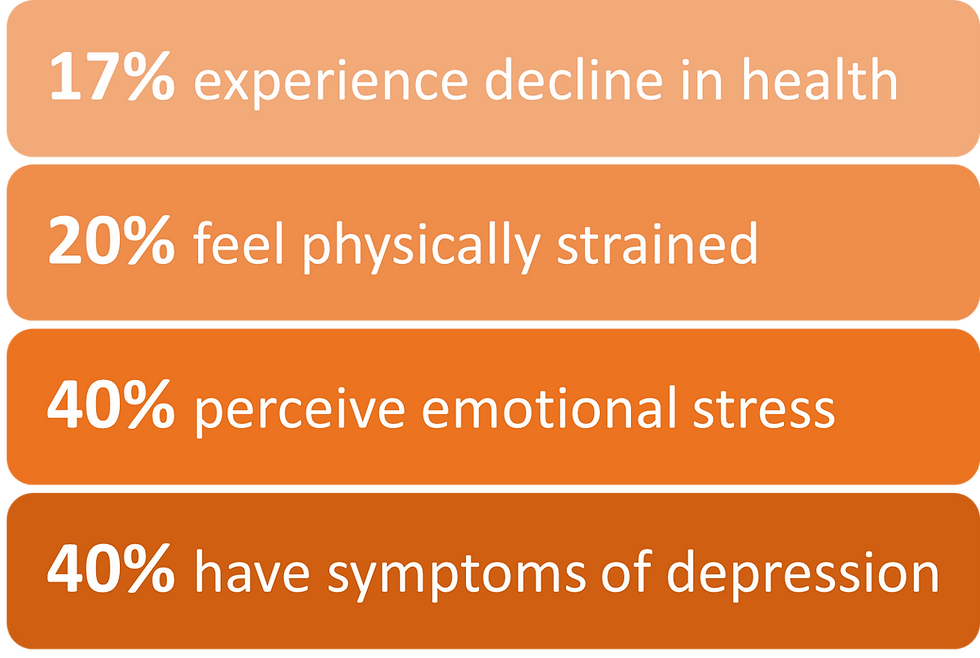Elder Care Benefits = Health Care Benefits
- Chad Baldwin, Founder and CRO

- Nov 7, 2023
- 2 min read
As an employer you know that people are the single greatest asset of your organization and recognize the importance of investing in their health and well-being to ensure they reach their highest human potential. But have you considered elder care benefits as part of your health investment strategy?
Caregiving’s Impact on Health
Although there are many positive aspects of being a caregiver for an older adult, there are also very real adverse health effects. Studies have shown that among family caregivers of older adults, regardless of their age:

And those caregivers over the age of 66 who experience mental or emotional strain are at even higher risk of serious illness than their non-caregiver counterparts.
Caregiver Support as Preventative Health
As an employer, can you afford to have nearly 10% of your workforce experiencing negative health consequences as a result of being a family caregiver? It’s time to be proactive in addressing family caregiving and view it as a preventative health measure.
Studies have shown that family caregivers are more often likely to neglect their own health since they are focused on the health of their loved one. They skip regular preventive health exams, do not address the additional stress and emotions of being a family caregiver, and generally lead a less healthy lifestyle.
Investing in Caregivers’ Health
We know that the most profitable investment we can make is in our own health, but it is difficult to find the time and energy to care for ourselves when we are balancing work with caring for others.
As an employer you can help your caregiver employees participate in their own well-being by offering an elder care benefit to reduce their caregiving burden and encourage them to participate in their own care.
Elder care solutions such as Mellie can be a part of your preventative health strategy by:
Connecting your caregiver employees to support networks and resources
Encouraging and offering tools for self-care
Providing education on caregiving topics, including caregiver well-being
Assisting with coordinating the care of your employee’s loved ones, allowing them to focus on what is important
Developing a plan and identifying resources to minimize emergencies and crises
Contact us to learn how we can partner with you to help foster a healthier and more productive workforce, while ensuring that your employees’ loved ones are getting the compassionate care they deserve.



Comments